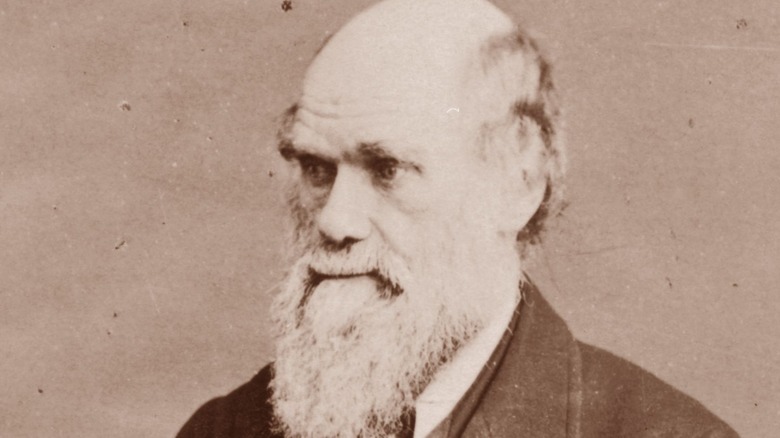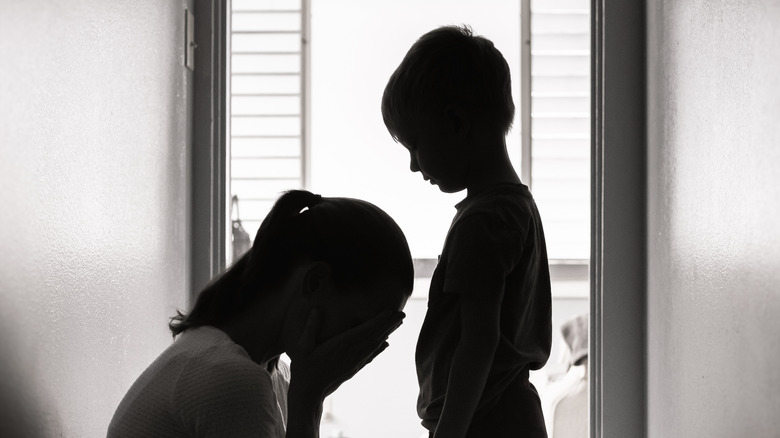The Tragic Death Of Charles Darwin's Mother
Charles Darwin experienced tragedy at a young age. Before he would reshape the trajectory of scientific research with his theory of evolution by natural selection, which tied the ancestry of all species of life, he experienced the loss of his mother when he was just eight years old. According to Scientific American, the death, which came just a few days after she began experiencing stomach pains, might have been the result of an abdominal infection. Elsewhere, SparkNotes claimed that the pains were likely a sign of a severe ulcer or stomach cancer.
Darwin's mother's death left him in the care of his three older sisters. Although Darwin did not have many memories of his mother, his anxious temperament later in life suggested that the loss shaped the man he would become. And research supports this: Frontiers in Psychology found that the loss of a parent early in life predicts the onset of physical illness, echoing the links between such loss and psychopathologies like anxiety.
The death had a profound impact on Darwin
Darwin biographer Janet Browne contended that the quick and inexplicable way that his mother died had a profound impact on Charles' adult life. Per Scientific American, it was the nature of his loss that Browne said drove Darwin's worries about his and his children's health, which he knew could turn awry at any moment, possibly due to inheriting genetics from his mother's side.
Darwin's anxiety about his own health continued throughout his life and peaked before his 40,000-mile journey from England to South America on HMS Beagle, an expedition that would pave the way for his book "Origin of Species." He was regularly paranoid about physical symptoms that he believed were signs of serious health problems, and described his health issues in his correspondence on the Beagle.
At the end of his life, Darwin had allegedly overcome his fear of death. Before he died of heart disease, he told his wife he was not afraid to die. In a fitting twist of fate, Darwin's theory of natural selection is sometimes used as a way to describe — even rationalize — the inexplicable cycle of life and death and the underlying natural forces that drive it.

